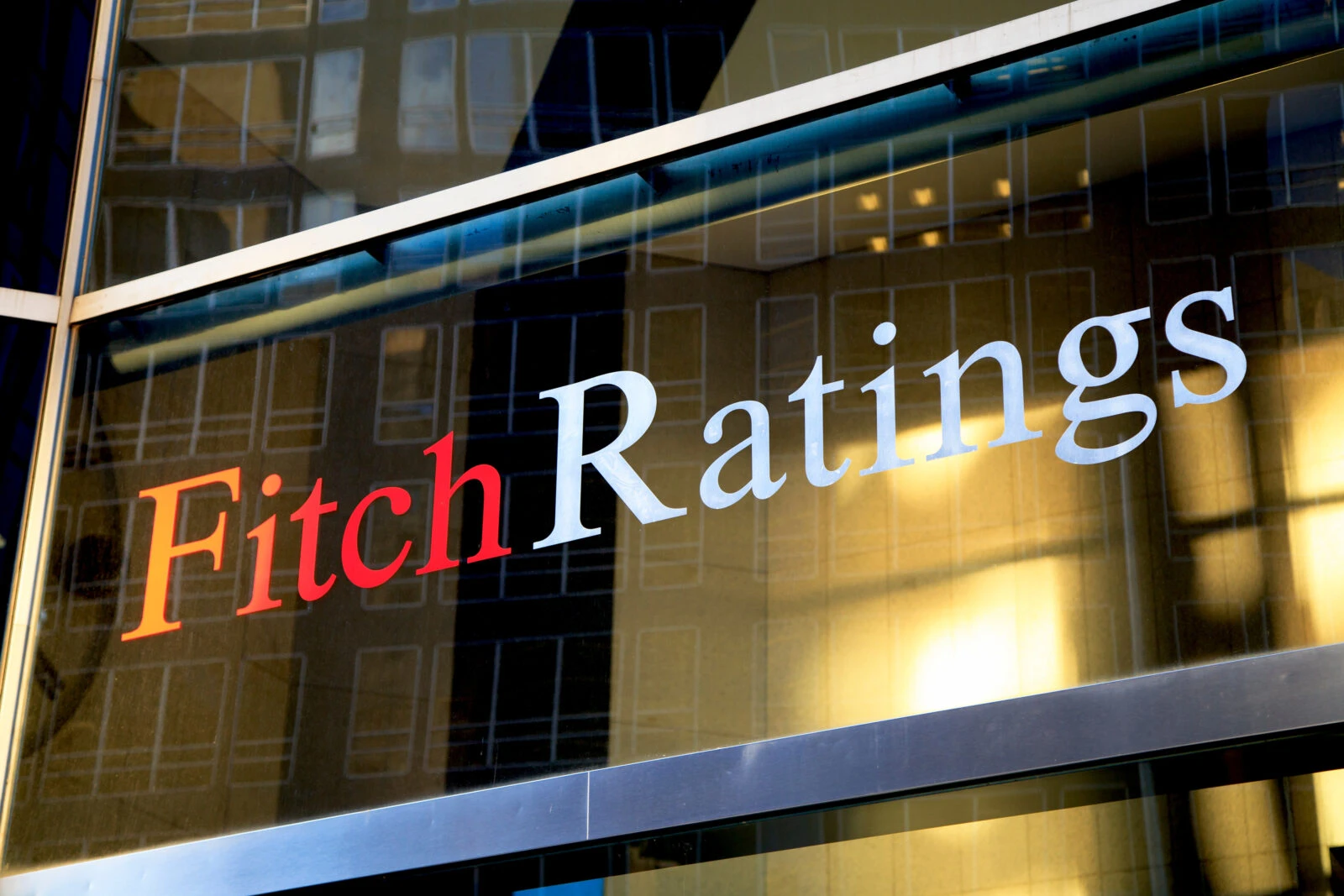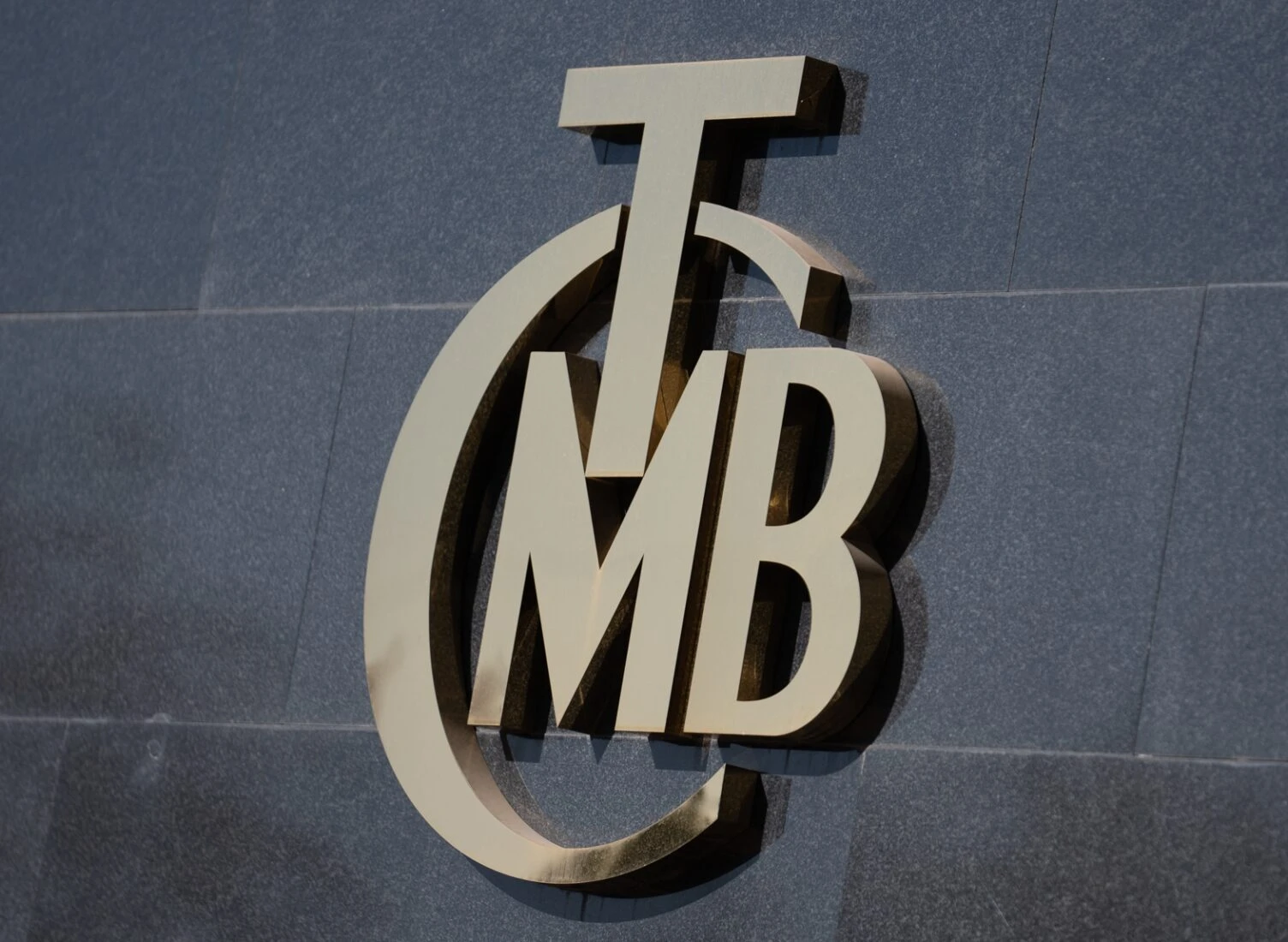Fitch Ratings maintains ‘stable’ outlook on Turkish economy, citing 3 key factors
 Photo shows the exterior of a Fitch Ratings office in London, UK, featuring the company's logo on a glass window. (Adobe Stock Photo)
Photo shows the exterior of a Fitch Ratings office in London, UK, featuring the company's logo on a glass window. (Adobe Stock Photo)
Fitch Ratings, one of the big three credit rating agencies along with S&P Global and Moody’s, secured Türkiye’s credit rating at “BB-” with a “Stable” outlook on Friday.
Noting Türkiye’s central bank has begun its monetary easing cycle with two consecutive 250-basis-point cuts to 45%, the international credit rating agency projected a further reduction to 28% by the end of 2025 while maintaining a tight stance to support disinflation.
Fitch estimated that Türkiye’s gross domestic product (GDP) growth slowed to 2.9% in 2024 and forecasted moderate growth of 2.6% in 2025 because of tight monetary policies, fiscal consolidation, and a moderate minimum wage increase. Inflation remains a concern for the country, though Fitch forecasts it will decline materially to 32.8% in 2025 from 60.2% in 2024.
External buffers have shown improvement, with international reserves rising by $14 billion to $155 billion in 2024. Positive real interest rates, low current account deficits, and capital inflows are expected to bolster external buffers, with reserves projected to reach $175 billion by 2026, Fitch indicated.

The central bank’s net foreign assets also increased, surging to $39 billion in early 2025, supported by reduced financial dollarization, capital inflows, and increased external borrowing access. The current account deficit declined to 0.8% of GDP in 2024 and is forecast to average 1.5% of GDP in 2025-2026, below the “BB” median of 2.4%.
Fiscal consolidation remains a priority, with the central government deficit declining to an estimated 4.8% of GDP in 2024 and projected to fall to 3.3% in 2025 and 3% in 2026, driven by lower earthquake-related spending and increased expenditure discipline, among other reasons.
General government debt is expected to remain low at 26.3% of GDP, significantly below the “BB” median of 55.2%. Fitch last upgraded Türkiye’s rating from “B+” to “BB-” in September, maintaining a stable outlook.
Fitch’s key factors
Fitch also outlined key factors most likely to lead to a downgrade or upgrade in Türkiye’s credit ratings. According to Fitch, the primary factors shaping Türkiye’s economic outlook in 2025 are as follows:
- Macroeconomic stability and risks: Inflation trends, monetary policy credibility, and the balance between policy easing and financial stability play a crucial role in determining credit ratings. A return to unconventional policies or rising macro-financial risks could lead to a downgrade, while a sustained decline in inflation with credible monetary policy could support an upgrade.
- External financial position: The strength of international reserves, the current account balance, and overall market confidence are key determinants. A sharp decline in reserves or a widening current account deficit could negatively impact ratings, whereas a significant improvement in external buffers and reduced financing needs would be positive.
- Institutional and structural factors: Political stability, governance reforms, and international relations influence economic resilience. A deterioration in domestic or geopolitical conditions could weaken Türkiye’s credit standing, while structural reforms that enhance institutional strength and governance would contribute to a rating upgrade.
Confidence in Turkish economy at 10-month high
Meanwhile, the Turkish economy’s confidence index hit a 10-month high while annual inflation expectations decreased, supporting a positive outlook.
Türkiye’s economic confidence index hit 100.3 in March 2024, but the figure declined in the following months to as low as 93.1 in August and started recovering toward the end of the year.
The figure rose to 99.7 in January from 98.9 in December, according to data from the country’s statistical office, Turkstat. Meanwhile, the consumer confidence index reached 81 after seeing its lowest last year at 75.9 in July and ending the year at 81.3. The real sector confidence index was completed in 2024 at 102.7 and reached 102.6 in January 2025.
The services confidence index fluctuated last year, reaching its highest of 120.4 in February and ending at 113.6. The index started the new year with a rise, reaching an eight-month high of 116.5.
The Central Bank of the Republic of Türkiye (CBRT) released its Survey of Market Participants, which showed that the 12-month ahead inflation expectation for market participants declined by 1.7 percentage points (pp) to 25.4%, for the real sector by 3.8 pp to 43.8%, and for households by 4.3 pp to 58.8%.

Inflation estimates play a crucial role in assessing the pace of disinflation, Treasury and Finance Minister Mehmet Simsek stated in a post on X, reaffirming the commitment to permanently reducing inflation.
Türkiye’s annual inflation rate stood at 44.38% in December 2024, maintaining its downward trend since June 2024, according to the Turkish Statistical Institute (TurkStat). As an indication of progress in the disinflation program, the CBRT initiated an interest rate cut cycle in December 2025 with a 250 basis point reduction after a nearly 2-year hiatus, followed by a similar cut in January.
Following credit ratings assigned to the Turkish economy by the big three credit rating agencies:
| Rating agencies | Türkiye sovereign credit rating | Outlook |
| Fitch | BB- | Stable |
| Moody’s | B1 | Positive |
| S&P | BB- | Stable |
Additionally, Türkiye was the only country to receive an upgrade from all three major credit rating agencies—Fitch, S&P Global, and Moody’s—in 2024. Starting in 2025, Moody’s also held Türkiye’s credit rating at ‘B1’ with a “positive” outlook on Jan. 25.



